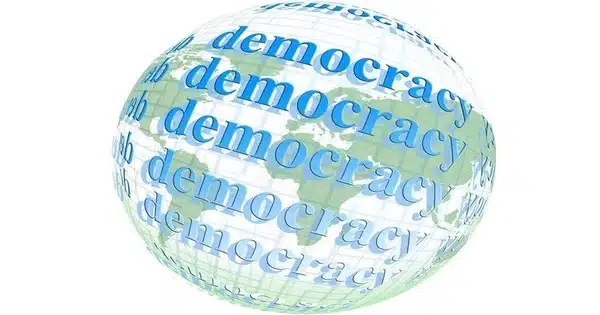Democratic globalization is a notion that promotes global governance and international collaboration with a focus on democratic values and participation. It is a social movement aimed at establishing a global democratic institutional system. It envisions a world order in which international decisions and policies are formed through more inclusive and democratic processes that include participation from diverse governments, civil society organizations, and individuals.
This concept is frequently contrasted with “anti-globalization,” which is connected with opposition to globalization and the belief that it favors only wealthy elites and corporations. David Held, a British political thinker, is one of its supporters. Held has written a dozen books about the spread of democracy from territorially bounded nation states to a system of global governance that encompasses the entire globe in the previous decade.
For some, democratic mundialisation (from the French term mondialisation) is a form of democratic globalisation emphasizing the necessity for citizens worldwide to directly elect world leaders and members of global organizations; for others, it is simply another name for democratic globalisation. Key elements of democratic globalization include:
- Inclusivity: The idea that global decision-making processes should be open and accessible to a wide range of stakeholders, including nation-states, international organizations, non-governmental organizations (NGOs), and ordinary citizens.
- Transparency: A commitment to transparency in global decision-making, with information and deliberations made available to the public, enabling scrutiny and accountability.
- Accountability: The recognition that global institutions and decision-makers should be accountable to the people they affect, and mechanisms for holding them accountable should be in place.
- Participation: Encouraging active participation of individuals, civil society groups, and nations in shaping global policies and agreements.
- Human Rights and Social Justice: Promoting and protecting human rights and social justice as fundamental principles of global governance.
- Environmental Sustainability: In a global perspective, addressing environmental concerns and supporting sustainable behaviors.
- Rule of Law: Maintaining the rule of law at the international level and resolving conflicts in a fair and just manner.
The term “democratic globalization” has been connected with a number of groups and organizations that push for the reform of global governance systems, such as the United Nations, the International Monetary Fund (IMF), and the World Bank. These supporters want these institutions to be more sensitive to the interests and concerns of the worldwide people. They also advocate for increased representation of developing countries and marginalized groups in decision-making processes affecting them.















